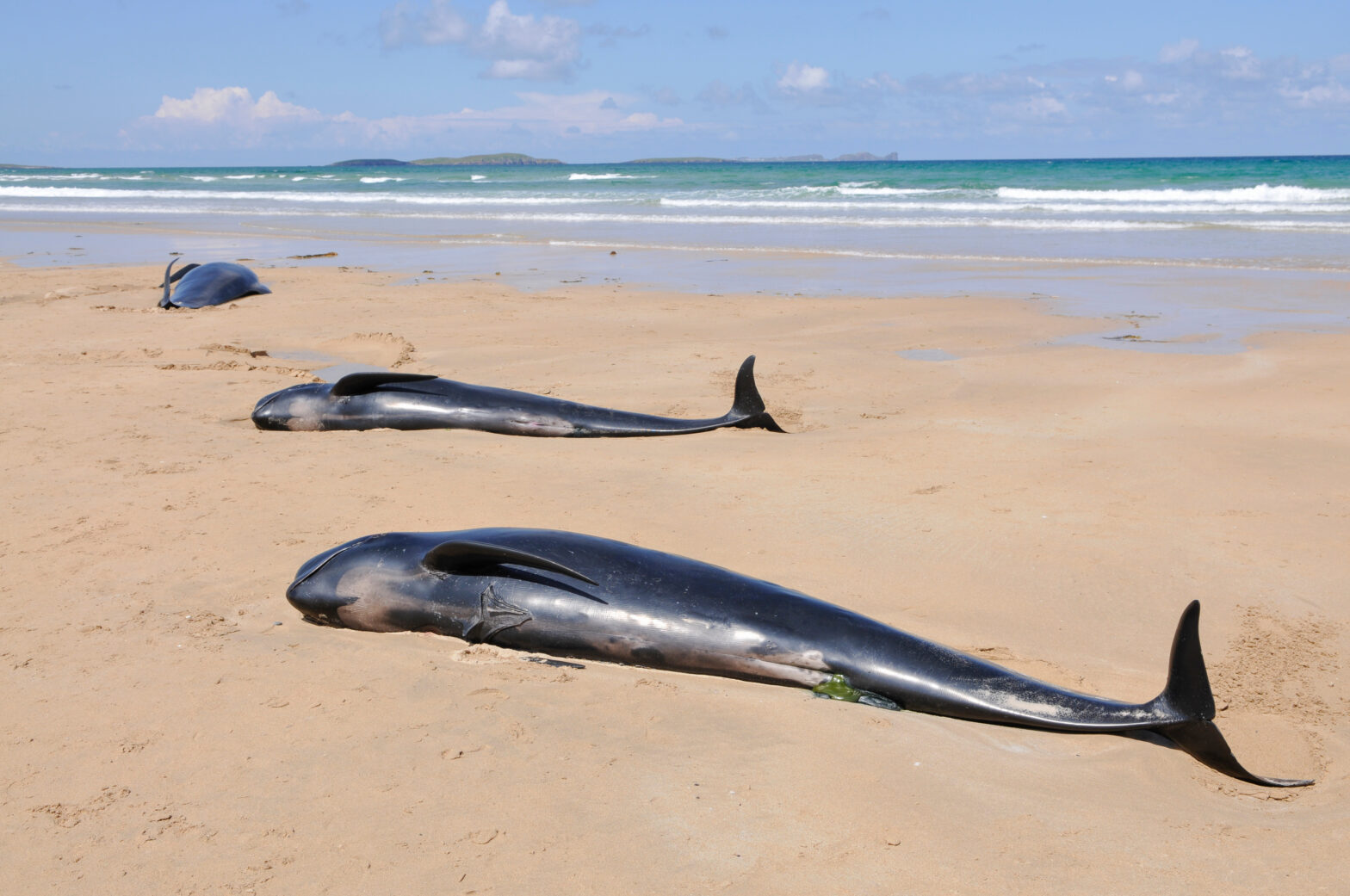Mass pilot whale strandings at opposite ends of the world cause great concern
There have been two recent mass strandings of pilot whales, one in Scotland and one in Australia. In both cases very large numbers of animals came ashore and most of them died. Understandably, these events cause huge public concern and attempts were made to rescue the animals.
The first event was at Traigh Mhor in North Tolsta on the Isle of Lewis in Scotland on Sunday July 16th. Fifty-five pilot whales came ashore (adults and young) and a local rescue team attended, whilst national resources were also swiftly mobilised, including the refloatation pontoons that are now commonly used in such rescue attempts.
OceanCare partner, BDMLR, the UK coastguard, Fire and Rescue, and the Scottish Marine Animal Stranding Scheme all attended. Two whales were refloated but one of them restranded and died. The other appears to have survived. All the remaining animals died or were euthanised on welfare grounds and because the local situation made refloating unsafe.
This is the largest mass stranding in Scotland for many decades. One of the whales appeared to have had difficulties giving birth and it has been suggested that the whole group stranded because they were trying to help her, leading to them coming into shallow waters which trapped them. Post-mortem investigations will shed further light on the condition of the animals and may help to explain why this happened.
An even larger group of pilot whales stranded on Cheynes Beach in Western Australia where 52 were reported dead on July 26th. The group had been spotted the previous day and unusual footage was gained of them very closely bunched together as if they were reacting to something that was distressing them.
Western Australia’s Parks and Wildlife Service and other rescuers worked trying to return the 45 surviving whales to deeper water. This was a race against time as the longer the whales were stranded the more internal damage would be caused by the unusual pressure on their bodies from being on a hard surface. Unfortunately the rescue effort was unsuccessful and the difficult decision was taken to euthanise all of the whales. Again, in this sad event, examination of the bodies may shed light on why this happened.
Mark Simmonds, OceanCare’s Director of Science, comments: ‘Pilot whales are animals of the deep-seas and, of all the species of whales and dolphins, they are among those most likely to mass strand. They live in very tight-knit family groups and may spend their whole lives with the same group of individuals. In these groups out in the open ocean, the best way to help each other is by close cooperation, for example to fend off predators, but it is this same very strong instinct that may cause them all to come ashore into dangerous shallow waters together. This may be triggered if one of them – perhaps a lead animal – is sick or wounded. Such a strong social cohesion is difficult for us to understand as we don’t have the same instinct (or live in the same open ocean environment). It also explains why pilot whales and other similar species can be driven ashore in large groups and killed, as sadly still happens in Japan and the Faroe Islands. Such species can also be driven by loud noises and we need to be vigilant to human causes for strandings, whilst also being aware that they can occur naturally.’
Sources
BDMLR: https://bdmlr.org.uk/pilot-whale-mass-stranding-isle-of-lewis
The Guardian: https://www.theguardian.com/environment/2023/jul/16/pilot-whales-dead-mass-stranding-isle-of-lewis-scotland and https://www.theguardian.com/environment/2023/jul/26/wa-mass-stranding-pilot-whales-cheynes-beach-why-do-whales-beach-themselves
Photo: Earlier stranding of pilot whales in Ireland
